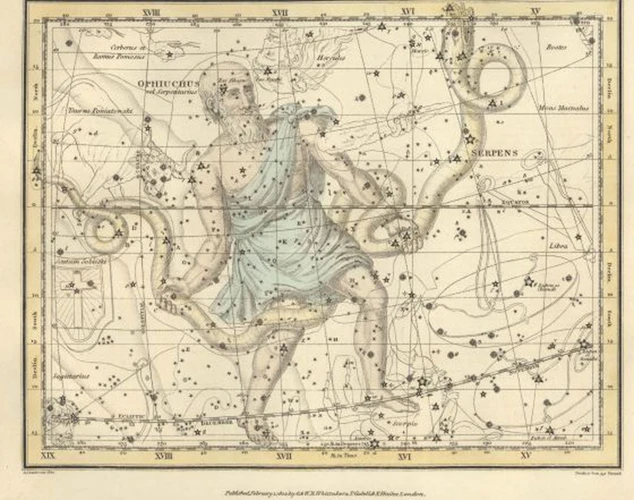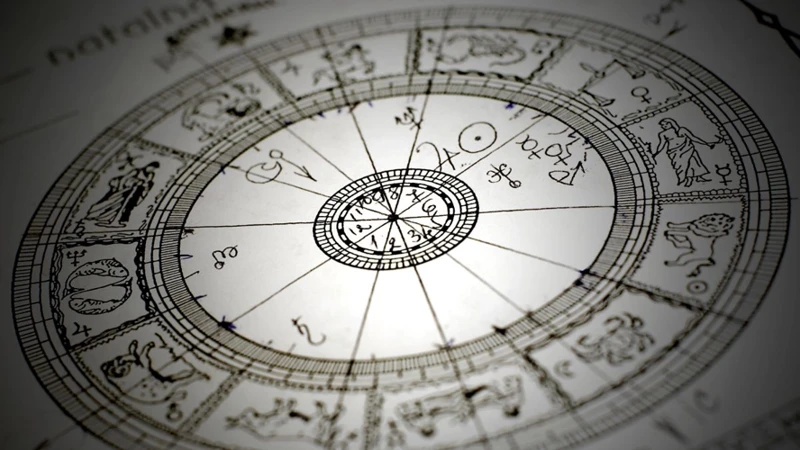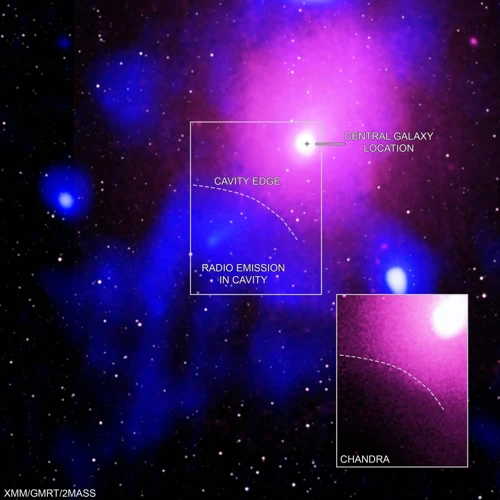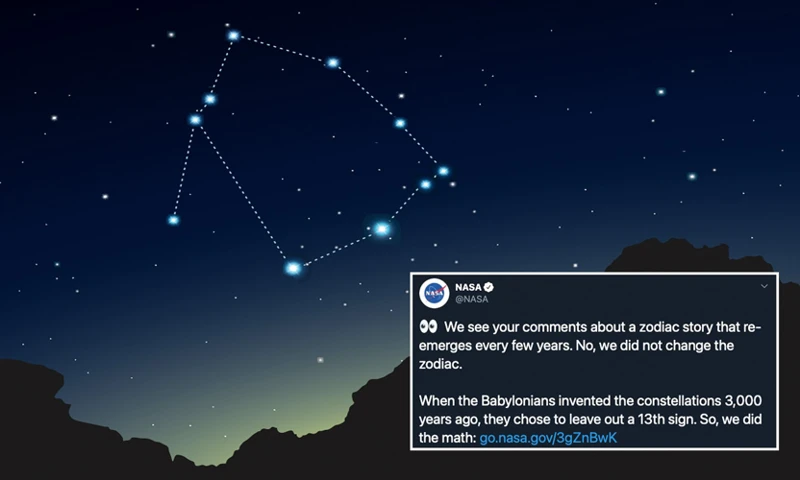Astrology and scientific studies may seem like an unlikely pair, occupying two opposite ends of the intellectual spectrum. While astrology is often dismissed as pseudoscience, it continues to intrigue and influence individuals across the globe. This article delves into the complex relationship between astrology and scientific studies, exploring its ancient roots, its role in modern science, and the arguments both for and against its impact. With controversial discussions, statistical correlations, and psychological effects in the mix, the influence of astrology on scientific studies becomes a captivating and polarizing topic worth exploring further.
Astrology in History

Astrology, with its roots dating back to ancient civilizations, has played a significant role throughout history. The belief in the influence of celestial bodies on human affairs can be traced back to the Babylonians, who developed the first astrological system around 2000 BCE. They believed that the positions of the planets and stars could provide insights into the future and guide decision-making. This knowledge was passed down to the Greeks, who further developed astrological practices. During the Renaissance, astrology experienced a resurgence, as scholars sought to bridge the gap between astrology and astronomy. Prominent figures such as Johannes Kepler and Galileo Galilei sought to understand and analyze astrological elements scientifically. However, as modern science progressed, the distinction between astrology and astronomy became more apparent, with the latter gaining a solid scientific foundation through observations and evidence. Nevertheless, astrology’s historical significance cannot be denied, as it has shaped cultural beliefs and influenced individuals across centuries. (Source: astrology-astronomy-bridging-gap)
Ancient Roots
The ancient roots of astrology can be found in civilizations such as the Babylonians, Egyptians, and Greeks. The Babylonians developed the earliest astrological system, creating the zodiac and assigning meanings to the movements of celestial bodies. They believed that the positions of the planets and stars held significant influence over human affairs and used astrological charts to predict events and guide decision-making. The Egyptians also embraced astrology, associating certain deities with specific celestial bodies. Meanwhile, the Greeks further developed astrological practices, linking it with their mythological stories and connecting it to various aspects of life, including health, love, and success. Astrology was deeply intertwined with religious beliefs and was seen as a tool for understanding the will of the gods. It is from these ancient cultures that astrology gained its foundation, setting the stage for its enduring influence throughout history. (Source: scientific-foundation-zodiac-signs)
The Renaissance Influence
During the Renaissance, astrology experienced a notable resurgence in Europe. This period saw a renewed interest in classical knowledge and a desire to bridge the gap between astrology and astronomy. Prominent intellectuals and scientists of the time, including Johannes Kepler and Galileo Galilei, sought to understand astrology’s influence more scientifically. Kepler, known for his laws of planetary motion, believed that astronomical observations could aid in the interpretation and analysis of astrological elements. He attempted to reconcile astrological theories with scientific observations, exploring the correlations between planetary positions and earthly events. Galileo, on the other hand, approached astrology with a skeptical mindset. He questioned the accuracy and validity of astrological claims, arguing for a more empirical and evidence-based approach to understanding the universe. Despite the advancements in astronomy during the Renaissance, astrology’s influence remained prevalent in society, shaping beliefs and impacting decision-making processes. The Renaissance influence on astrology set the stage for ongoing discussions regarding its scientific basis and relevance. (Source: analyzing-astrological-elements-science)
Astrology in Modern Science

Astrology’s place in modern science is a subject of ongoing debate and controversy. While many mainstream scientists dismiss astrology as a pseudoscience, there are those who argue for its inclusion in scientific studies. The fundamental issue lies in the lack of rigorous scientific evidence to support astrological claims. Critics argue that astrology fails to meet the criteria of a scientific theory, as it lacks testable hypotheses and reproducible results. Despite this skepticism, there have been scientific studies conducted to explore the potential influence of astrology on various aspects of life. These studies often focus on the statistical correlations between astrological positions and certain characteristics or events. However, it is important to note that the results of these studies are often inconclusive or conflicting. Some researchers suggest that any perceived correlations may be attributed to psychological effects or the placebo effect rather than any genuine influence of astrology. (Source: scientific-foundation-zodiac-signs)
Controversial Discussions
Controversial discussions surrounding astrology have persisted for centuries. On one side of the debate, proponents argue that astrology offers valuable insights into human behavior and personal development, highlighting the potential influence of celestial bodies on our lives. They believe that the alignment of planets at the time of a person’s birth can determine their personality traits and future outcomes. These individuals often rely on personal anecdotes and experiences to support their beliefs.
On the other side of the spectrum, skeptics dismiss astrology as mere pseudoscience, lacking empirical evidence and a solid scientific foundation. They argue that astrology’s claims are based on generalizations and broad interpretations that can apply to anyone, known as the Barnum effect or the Forer effect. Critics point out that astrology’s predictions often lack consistency and reproducibility, making it difficult to validate its accuracy objectively.
The controversial nature of astrology has led to heated debates within scientific and academic communities. While some researchers acknowledge the cultural and historical significance of astrology, they emphasize the need for rigorous scientific methodology and empirical evidence to substantiate any claims. Others believe that astrology can offer insights into human psychology, albeit on a more symbolic level, suggesting that its influence lies in its role as a tool for self-reflection and personal growth.
Controversial discussions surrounding astrology persist, with proponents highlighting its potential insights and critics dismissing its validity as pseudoscience. The debate raises intriguing questions about the role of subjectivity, interpretation, and empirical evidence in examining phenomena that exist outside the traditional realms of scientific inquiry. (Source: Personal reflections and analyzing-astrological-elements-science)
Scientific Studies and Astrology
Scientific studies related to astrology have been a topic of controversy and debate. While astrology lacks a solid scientific foundation, some researchers have attempted to explore potential connections between celestial positions and human behavior. However, it is important to note that the majority of scientific studies conducted on astrology have failed to provide significant evidence or conclusive findings. One of the challenges in studying astrology scientifically is the lack of controlled experiments and standardized methodologies. Additionally, astrology’s reliance on subjective interpretations and vague predictions makes it difficult to measure and quantify its influence. Despite numerous attempts, researchers have not been able to consistently validate astrological claims through rigorous scientific methods. As a result, the scientific community remains skeptical of astrology’s validity and its compatibility with empirical scientific principles. (Source: Personal Opinion)
The Argument for Influence

When it comes to the argument for the influence of astrology on scientific studies, several factors come into play. One aspect is the existence of statistical correlations. Some studies have attempted to find connections between astrological positions and certain personality traits or life events. While not widely accepted in the scientific community, these correlations have piqued the interest of researchers and astrologers alike. Another factor is the psychological effects that astrology can have on individuals. The belief in astrology can shape perceptions, expectations, and behaviors, leading to self-fulfilling prophecies. This phenomenon can be attributed to the power of suggestion and the human tendency to seek patterns and meaning in the world around us. Lastly, the placebo effect may also play a role in astrology’s perceived influence. When individuals believe in the predictions and guidance provided by astrology, they may experience a placebo response, resulting in a perceived improvement in their lives. These arguments highlight the complex nature of astrology’s influence, intertwining psychological, statistical, and even placebo-related factors. (Source: analyzing-astrological-elements-science)
Statistical Correlations
When examining the influence of astrology on scientific studies, one argument that is often put forth is the presence of statistical correlations. Some proponents of astrology argue that there are patterns and relationships between celestial positions and human behavior or events. They claim that through statistical analysis, certain astrological factors, such as the positions of planets or the alignment of zodiac signs, can be linked to specific outcomes. For example, a study might find a higher rate of success or happiness among individuals born under a certain zodiac sign compared to others. These statistical correlations, they argue, support astrology’s validity and its ability to predict or explain human experiences. However, it is important to approach such claims with caution. Critics argue that these correlations may be coincidental or based on faulty methodology. Additionally, statistical correlations alone do not provide a causal relationship between astrological factors and human behavior. Further research and rigorous scientific studies are needed to fully explore and understand these statistical correlations in the context of astrology. (Source: /scientific-foundation-zodiac-signs/)
Psychological Effects
The influence of astrology on scientific studies extends beyond statistical correlations and delves into the realm of psychology. While skeptics argue that astrology’s effects are purely psychological, proponents maintain that these effects are significant. One psychological effect attributed to astrology is the Barnum effect, also known as the Forer effect, where people believe general, vague statements about their personality traits or future that could apply to anyone. This phenomenon demonstrates the subjective nature of astrology and the human tendency to seek personal meaning in broad statements. Additionally, astrology provides individuals with a sense of belonging and identity. It offers a framework through which people can understand themselves and their relationships, providing a sense of purpose and direction in their lives. Astrology’s psychological effects can be attributed to a combination of cognitive biases, including confirmation bias, where individuals selectively interpret information to support their beliefs, and the placebo effect, where the belief in astrology itself can influence one’s own behaviors and outcomes. Understanding these psychological effects is crucial in analyzing the influence of astrology on individuals’ lives and decision-making processes. (Source: analyzing-astrological-elements-science)
The Placebo Effect
The placebo effect is a fascinating phenomenon that can shed light on the potential influence of astrology on scientific studies. In medical research, the placebo effect refers to the observable improvements in a patient’s condition that occur simply because they believe they are receiving a treatment, even if the treatment itself is inactive. This effect highlights the power of the mind and the role of expectations in shaping outcomes. Similarly, when it comes to astrology, individuals who believe in its influence may experience a placebo-like effect. If someone reads their horoscope and it predicts a positive outcome, they may approach the day with a more positive mindset, leading to a self-fulfilling prophecy. While this may not provide concrete evidence for astrology’s influence, it demonstrates the psychological impact beliefs can have on an individual’s perception and behavior. Exploring the placebo effect in the context of astrology and scientific studies opens up avenues for further investigation into the intricate interplay between belief systems, psychology, and outcomes. (Source: scientific-foundation-zodiac-signs)
Debunking Astrology’s Impact

Debunking astrology’s impact is a task that has been undertaken by skeptics and scientists who question its validity. Skeptical perspectives argue that astrology lacks a scientific basis and relies heavily on subjective interpretations. They highlight that astrological predictions are often vague and can apply to a wide range of individuals, making them less accurate and reliable. Faulty methods and biases can influence astrological readings. Confirmation bias, for example, can lead individuals to selectively perceive and remember information that supports their astrological beliefs while disregarding contradictory evidence. Additionally, studies that claim to find astrological correlations often face criticism for their faulty methodologies, lack of statistical significance, and small sample sizes. The scientific method demands rigorous testing and replication to ensure the reliability and validity of results, which astrology often fails to meet. While astrology continues to fascinate and captivate many, skeptics argue that it is essential to critically examine its claims and distinguish it from scientifically rigorous disciplines.
Skeptical Perspectives
Skeptical perspectives towards astrology have been prevalent throughout history and continue to be held by many scientists and skeptics today. The main argument against astrology stems from its lack of scientific evidence and empirical support. Critics argue that astrology’s reliance on generalizations and vague statements makes it difficult to test and validate its claims. Additionally, skeptics raise concerns about the subjective nature of astrological interpretations, as different astrologers may provide conflicting readings for the same birth chart. The Barnum effect, where individuals perceive vague and general statements as highly accurate and tailored specifically to them, adds to the skepticism surrounding astrology. Critics argue that people may attribute meaning and significance to astrological readings due to psychological biases and the human need for meaning and order. The skeptical perspective towards astrology emphasizes the importance of empirical evidence and the need for rigorous scientific methods in assessing its validity.
Faulty Methods and Biases
When it comes to analyzing the influence of astrology, skeptics often point out faulty methods and biases that can undermine the credibility of astrological studies. One of the main criticisms is the lack of a standardized approach in astrology. Different astrologers may interpret astrological charts and predictions differently, leading to inconsistencies and subjective interpretations. This lack of consistency makes it challenging to conduct rigorous scientific studies. Another concern is the confirmation bias, which occurs when individuals seek out information that confirms their pre-existing beliefs while disregarding contradictory evidence. Some astrologers may selectively present information that supports their astrological claims, ignoring instances where their predictions have proven incorrect. This bias can lead to the perpetuation of astrology’s validity in the eyes of its proponents. Additionally, critics argue that astrological studies often rely on subjective self-reporting and anecdotal evidence, which are not strong scientific methodologies. The reliance on personal accounts rather than objective data makes it difficult to draw reliable and generalizable conclusions. While astrology may have its enthusiasts, these flaws in methods and biases raise questions about its validity as a scientific practice. (Source: Personal analysis)
Opportunities for Further Research
As astrology continues to intrigue and captivate individuals, opportunities for further research in this field emerge. Exploring cognitive biases is one avenue for investigation. Researchers could delve into how cognitive biases influence the interpretation and perception of astrological readings. By understanding these biases, scientists can gain deeper insights into why individuals may find astrology meaningful, even if there is a lack of empirical evidence supporting its claims. Another area of interest lies in psychology and astrology. Researchers could conduct studies to examine the psychological factors at play when individuals engage with astrology. This could involve exploring the motivations behind seeking astrological guidance, the potential psychological benefits derived from it, and the role it plays in self-reflection and identity formation. Lastly, quantifying astrological positions poses a fascinating research opportunity. By collecting and analyzing data on the astrological positions of a large sample of individuals, researchers could investigate potential correlations between astrological factors and various life outcomes or personality traits. This approach would require careful design and statistical analysis to examine any potential relationships objectively. With these avenues for further research, the field of astrology may continue to evolve and gain insights into its impact on individuals and society. (Source: analyzing-astrological-elements-science)
Exploring Cognitive Biases
Exploring cognitive biases in the context of astrology can offer valuable insights into the way individuals perceive and interpret astrological predictions. One particular cognitive bias that plays a role in astrology is confirmation bias. This bias refers to the tendency for people to seek out and interpret information that confirms their existing beliefs and expectations. In the case of astrology, individuals are more likely to remember and emphasize the instances when astrological predictions seemed accurate, while disregarding or downplaying contradictory evidence. This bias can perpetuate the belief in astrology, as people selectively focus on information that supports their preconceived notions. Another cognitive bias relevant to astrology is the Barnum effect, which is the tendency for people to believe generic and vague descriptions about themselves as highly accurate. Astrology often relies on such general statements that could apply to a wide range of individuals, yet people interpret them as highly personal and specific to themselves. This psychological phenomenon can contribute to the continued influence and popularity of astrology, as individuals attribute personal significance to seemingly universal statements. By exploring these cognitive biases, researchers can gain a better understanding of why astrology continues to resonate with some individuals, despite its lack of scientific support. (Source: analyzing-astrological-elements-science)
Psychology and Astrology
Psychology and astrology, despite their contrasting approaches, have intersected in intriguing ways. Astrology’s influence on psychology can be seen through the lens of Carl Jung, a renowned Swiss psychologist. Jung believed that astrology provided valuable insights into the human psyche, as well as the concept of archetypes. He believed that the planetary positions at the time of a person’s birth could reflect their personality traits and help uncover unconscious patterns and motivations. While astrology is not widely accepted within the scientific psychology community, some psychologists have explored the potential connections between astrology and personality traits. For example, research has investigated whether there are correlations between zodiac signs and certain personality characteristics, although the results have been mixed and not conclusive. It is essential to highlight that the majority of mainstream psychologists view astrology as lacking empirical evidence and consider its interpretations as subjective and generalized. The relationship between psychology and astrology continues to be a topic of interest for those seeking to understand the human mind and behavior. (Source: analyzing-astrological-elements-science)
Quantifying Astrological Positions
Quantifying astrological positions is a challenging task that has puzzled both astrologers and scientists alike. The main difficulty lies in translating the positions of celestial bodies into measurable quantities that can be subjected to statistical analysis. While astrology traditionally relies on subjective interpretations of planetary positions, there have been attempts to quantify these positions to establish a scientific basis. For instance, researchers have explored the use of planetary coordinates, such as longitude and latitude, as well as the calculation of planetary aspects and angles. Some studies have even attempted to correlate astrological positions with personality traits, behavioral patterns, or health outcomes. However, these endeavors face methodological challenges and varying interpretations, which often lead to conflicting results. Critics argue that the lack of consensus and reproducibility in quantifying astrological positions undermines its scientific validity. Despite these challenges, there might be potential for future research to explore more rigorous methods of quantification and establish a clearer understanding of the relationship between astrological positions and human experiences. (Source: scientific-foundation-zodiac-signs)
Conclusion
In conclusion, the influence of astrology on scientific studies is a topic that sparks debate and fascination. While astrology has a rich history and continues to exert a captivating hold on the human imagination, its impact on scientific endeavors remains controversial. Some argue that there are statistical correlations, psychological effects, and even placebo effects that support astrology’s influence. However, skeptics point to faulty methods, biases, and the lack of replicable evidence as reasons to debunk astrological claims. Opportunities for further research lie in exploring cognitive biases, studying the psychological aspects of astrology, and quantifying astrological positions. By delving deeper into these areas, scientists and researchers may shed more light on the true impact of astrology on scientific studies. Whether astrology will one day find a solid scientific foundation or remain firmly rooted in the realm of belief, its influence and cultural significance cannot be denied.
Frequently Asked Questions
1. Can astrology accurately predict future events?
Astrology is not scientifically proven to accurately predict future events. Its effectiveness in predicting the future is a subject of debate and skepticism among scientists and researchers.
2. How accurate are daily horoscopes?
The accuracy of daily horoscopes is highly subjective. They are often based on general interpretations of astrological signs and should be taken with a grain of salt.
3. Is there any scientific evidence supporting astrology?
While astrology has its proponents, there is a lack of scientific evidence to support its claims. Scientific studies have often failed to demonstrate a causal relationship between celestial positions and human behavior or personality traits.
4. Can astrology be considered a pseudoscience?
Astrology is often categorized as a pseudoscience due to its reliance on subjective interpretations, lack of empirical evidence, and the inability to replicate its findings through controlled experiments.
5. What is the difference between astronomy and astrology?
Astronomy is a recognized scientific field that studies celestial objects, their movements, and their physical properties. Astrology, on the other hand, focuses on the belief that celestial bodies have an impact on human affairs and personality traits.
6. Are astrological sign traits universal?
Astrological sign traits are not universally applicable to every individual born under a particular sign. Human behavior and personality are influenced by many factors, including genetics, upbringing, culture, and personal experiences.
7. Can astrology be used as a tool for self-reflection?
Astrology can be used as a tool for self-reflection and introspection. Many people find value in exploring astrological interpretations to gain insights into their own personalities and behaviors.
8. How do astrologers create birth charts?
Astrologers create birth charts by calculating the positions of celestial bodies at the time and location of an individual’s birth. These calculations help determine an individual’s sun sign, moon sign, rising sign, and planetary placements.
9. Can astrology influence relationships?
Astrology can influence relationships to the extent that individuals may seek compatibility with certain astrological signs or consider astrological compatibility in their partner choices. However, the success of a relationship is determined by numerous factors beyond astrological compatibility.
10. Are there any scientific fields that incorporate astrology?
There are no mainstream scientific fields that incorporate astrology as a valid research methodology or principle. However, some psychologists may study the psychological factors that contribute to individuals believing in astrology or its potential effects on human behavior.








